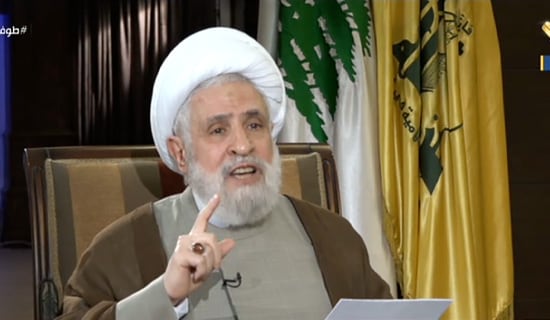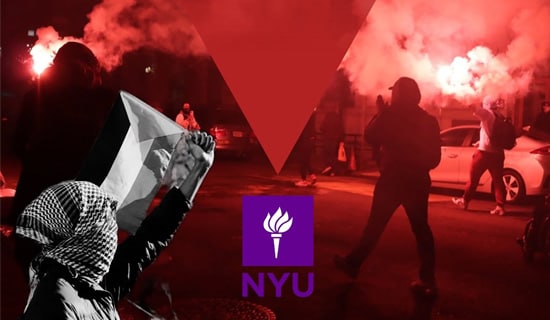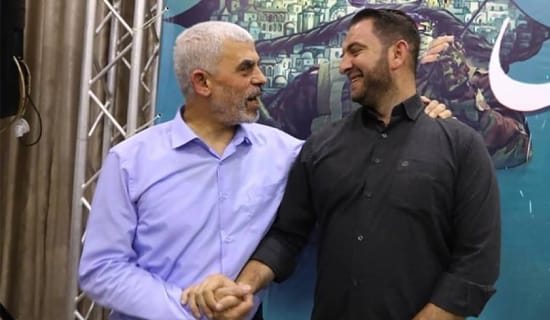Russia This Week is a weekly review by the MEMRI Russian Media Studies Project, surveying developing stories in Russian domestic affairs as presented in the Russian media.
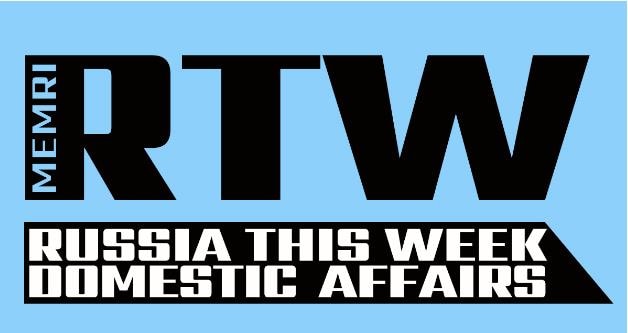
Putin Mania

The Russian firm Caviar launched a premium variant of the Nokia 3310 (2017) made with gold and titanium materials. Russian President Vladmir Putin's face is embossed on the mobile phone.(Source: Caviar-phone.ru/nokia)
In The News:
Russia's Economy
On February 27, during his speech at the Russian Investment Forum Sochi 2017, Russian Prime Minister Dmitry Medvedev, who is formally responsible for the economy said that Russia's labor market is now stable. Medvedev said: "We are still discussing the answers to the challenges facing Russia. Over the past few years, they were one way or another related to overcoming the crisis caused by global economic problems, volatility of commodity markets, structural imbalances in our economy, and, of course, sanctions caused by our political stance.
"We learned to cope with all these challenges. The decline in GDP was halted. The January statistics showed real disposable income entering the black and up about 8 percent on 2016. This is one of the most important results of the current economic period.
"We have all-time low inflation for modern Russia, standing at about 5.4 percent in 2016 and 5 percent in January 2017. In late 2015, inflation was nearly 13 percent. Plans to bring inflation down to 4 percent per year are absolutely realistic.
"The situation on the labor market is stable. We have coped with unemployment. Industrial output is modest at about 1 percent as of late 2016, although these figures are largely in line with median figures for Europe. There are industries showing significantly better results. And it’s not just the commodity sector. We have double-digit growth rates in the transport and the agricultural equipment industries and some segments of the chemical and the pharmaceutical industries... In general, we have stabilized the situation..."
(Government.ru, February 27, 2017)

Forum Sochi 2017 (Source: Government.ru)
According to the Russian news agency RIA, from 25 January to 1 February 2017 the number of unemployed citizens registered with employment services increased by 1.5% and totalled 899,411. A year earlier, the corresponding figure was 1,016,276 people.
(Ria.ru, February 2, 2017)
Russia’s Central Bank expects GDP to grow in 2017. The Central Bank said: "GDP is expected to grow as of 2017 year-end but economic growth rates will be low. Structural transformations and time are needed to develop and reinforce positive trends." The regulator added: "Economic recovery in 2016 was somewhat above the Bank of Russia’s expectations, as the average annual oil price was close to the baseline scenario assumptions."
(Tass.com, February 3, 2017)
In January 2017, Medvedev participated in the annual Gaidar Forum. This year's topic was "Russia and the World: Setting Priorities". During his speech Medvedev said:
"Now that the prices of raw materials are low, we need to reform the economy, which is dominated by the resource sector and is therefore vulnerable. That said, all our restructuring decisions must be as balanced and accurate as possible and complemented with the necessary stabilization and support measures... Russia has weathered the crisis better than many expected, but this does not mean that all the problems we faced are behind us. The Russian economy has the potential to grow at the rate of 3.5-4 percent. The question is how this potential can be unleashed. The Government is currently working on a plan of action to boost economic growth so as to surpass the global average growth rates in the foreseeable future...
"Sharp politicization of international economic relations is a major feature of the modern economy, which concerns everyone. A strong-arm approach, sanctions that are always at variance with economic considerations and politically motivated barriers in the way of mutually beneficial projects are continuously generating tensions in the world. There is another long-term, fundamental trend in the global economy. Commodity markets and whole industries are becoming increasingly integrated and mutually dependent. The way new technology united the global economy and the opportunities opened by the new technological wave, the so-called fourth industrial revolution, are making it abundantly clear that the global character of the economy is intensifying.
"There is no need to save globalization. If politicians do not actively meddle in it, it is fully capable of rescuing itself, using new mechanisms of global governance, such as the G20, which is increasingly replacing the G7 and the G8. Russia does not want to and will not isolate itself. We are not going to ignore global trends. Our goal is to use them to the maximum extent possible for resolving our own tasks..."
(Government.ru, January 12, 2017)
See MEMRI Special Dispatch No. 6297, Leading Economists At Russia's Sixth Gaidar Forum: The Oil Age Is Over; Russia Needs Internal Reforms To Overcome Recession, February 9, 2016.
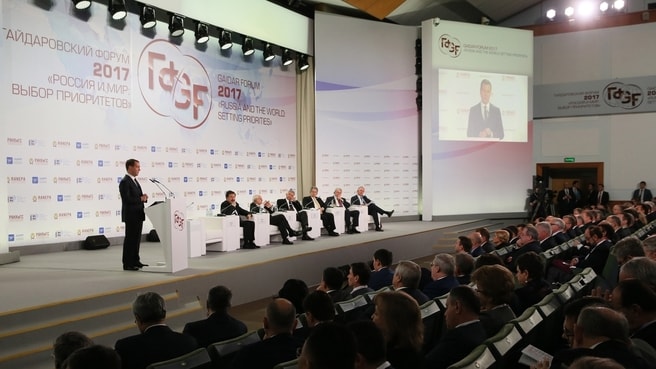
Gaidar Forum (Source: Government.ru)
During an interview with the Rossiya-1 TV channel, Russian Prime Minister Dmitry Medvedev said: "I have spoken about the sanctions more than once: we should be prepared to live under sanctions indefinitely long... Just look at what our friends overseas and in Europe are doing! They are enshrining these sanctions in law, they are codifying them. They are initiative a great deal of laws on top of various executive orders [U.S. former President Barack] Obama has issued. They are trying to pass laws to formalize these sanctions as standing, like the Jackson-Vanik amendment." He then added: "In this sense, we cannot count on their indulgence, and we don’t need it because, as life has shown, we can develop rather well even in conditions of the sanctions. And what we have achieved in industry and in agriculture was achieved not thanks to but despite as we had to restructure our work."
(Tass.com, January 28, 2017)
2018 Presidential Elections
On March 4, the Tass news agency published an article, titled "Putin’s Unprecedented Five Years: Russia Walks Its Own Path In World Politics," covering Russian President Vladimir Putin's "successes" since his reelection in 2012. This might be seen as a pre-election summary of achievements, as part of efforts for burnishing the presidential in the run up to 2018.
Below are excerpts from the article:
"Five years ago Vladimir Putin was elected Russia’s president for a third time. The just-ended time span was unique in the 25-year post-Soviet period in terms of the scale of processes inside the country and the global upheavals around it. It embodied an existential, fundamental challenge to Russia. The national leader accepted that challenge. In making his choice he proceeded not from time-serving considerations, but from the strategic interests of the state that extend well into the future.
"True, it might have been possible to opt for an easier, well-trodden path and to follow the mono-polar mainstream trend of globalism. At the helm for a third time, Putin found it essential to preserve Russia’s self-identification, while the risk of losing it would be very high, had the country decided to follow in others’ footsteps.
"The Munich speech of ten years ago heralded a straightforward, honest, frank, and sometimes harsh political style Putin preferred to stick to in world affairs. The Russian leader has remained committed to it over many years and it goes without saying that it has been causing ever greater influence on the international situation. And one has to admit that far from all world actors are happy to see this influence to grow.
Peskov: 'The Country Has Gained A Firmer Foothold In The International Scene'
SUPPORT OUR WORK

"In an interview with TASS, presidential spokesman Dmitry Peskov described the past five years in these words: 'Those were five unprecedented years in our country’s recent history. They required of Putin the maximum self-concentration, sophisticated professionalism and boldness of a politician and citizen. The process of revolutions triggered from outside reached Russia’s borders and in fact developed into an armed coup in the closest fraternal state - Ukraine, causing a civil war there. The historical reunification of Crimea with Russia saved the peninsula from turmoil and casualties. But after that Russia encountered outspoken, aggressive pressure from outside, such as sanctions, hostile diplomatic actions, complex crisis-induced phenomena in the economy, provoked, among other things, by an extremely unfavorable international economic situation following the slump in energy prices.'
"Peskov is certain that 'Putin and his team coped with all this by and large.'
"'The country has gained a firmer foothold in the international scene. The economy has regained stability. But there is the full awareness of the great amount of work ahead. Not a single person in the presidential team, let alone the president himself, thinks it is time for complacency,' he said.
Putin: 'When You’ve Been Slapped, Don’t Hesitate To Retaliate. Otherwise You’ll Be Slapped Again'
"In March 2012, 63.6% of those who went to the polls said they wished Putin to be Russia’s president again. The campaign was not an easy one. The nervousness of the parliamentary elections held just three months before that still lingered. But, as Putin himself would describe the situation later, 'this struggle [election campaign] has brought about consolidation inside our society and this is the most important result.' Putin also said 'this is a major stride along the path of developing social self-identification, which can serve as a solid guarantee of maintaining our sovereignty in the future.'
"Over just one month following his inauguration in 2012, Putin visited six foreign capitals. He held talks with the leaders of Belarus, Germany, France, Uzbekistan, Kazakhstan and China, where at the Shanghai Cooperation Organization summit he held meetings with the leaders of China and many other states. By the end of 2012 Putin paid visits to the Middle East, India, nearly all countries of the CIS, Europe and also the G20 summit, where he had a dozen special meetings with his foreign counterparts, including US President Barack Obama.
"Already at that moment there were quite a few burning topics on the agenda of relations with other countries. Suffice it to recall the Magnitsky Act, adopted in the United States. 'Apparently I am a bad Christian. When slapped on one cheek one ought to turn the other also. I’m not prepared for that morally yet," Putin confessed in 2012. 'When you’ve been slapped, don’t hesitate to retaliate. Otherwise you’ll be slapped again and again.' This reply to the question about the Magnitsky Act reaffirmed the Kremlin’s foreign policy style proclaimed earlier.
"At the same time Putin kept urging the West to present a common front. 'We are not interested in worsening our relations with anyone. We’ve got to stay patient and to look for compromises,' he said. 'The key feature of the new era is no single country can cope with global problems in the economy and in politics on its own,' Putin warned. 'Risks will prevail if each goes ahead with playing one’s own game, if the delusion chaos can be kept under control is not brushed aside.' Throughout 2012, Putin kept proposing the idea of common approaches to the situation in Syria, to the missile defense issue and to many other matters."
The Year 2013, Marked By Domestic And Foreign Tensions
"That year [2013] will be remembered by many for a string of tragic home events. The Krymsk flood (Putin then kept an eye personally on progress in overcoming its effects), the strong drought, and the Volgograd terrorist bomb blasts.
"Preparations for the Sochi Winter Olympics were high on the list of Putin’s priorities. He was certain that the Sochi Olympics, just as the 2018 World Soccer Cup finals would be held at the highest level. His Olympic forecasts, as the 2014 Winter Games showed, were precise.
"The lives of several convicts serving prison terms on high-profile criminal charges changed unexpectedly. Putin in 2013 twice addressed the State Duma with amnesty bills - one on an economic amnesty and the other timed for the 20th anniversary of the Constitution. One sent an encouraging message to businesses. The other, alongside a purely humanitarian aspect, had an unmistakable political side to it. It gave freedom to Greenpeace activists convicted of hooliganism, a group of young women from the Pussy Riot punk band and some activists involved in the so-called Bolotnaya Square riot case - in other words, personalities taking an outspoken 'anti-Putin stance' in the public space. Another telling message to the opposition came in a presidential decree of December 20, which granted pardon to Mikhail Khodorkovsky.
"In the meantime, tensions on the foreign policy track were steadily on the rise. It is hard to imagine what course the events in Syria might have taken, had Putin failed to persuade the G20 forum in St. Petersburg at the very last moment to accept his idea of putting Syria’s chemical weapons under international control for their subsequent removal and elimination. By doing so he prevented a US-French bombardment of Syria.
"Tangible progress was achieved on the Iranian track. In November, the way for settling the Iranian nuclear problem was paved in Geneva. Russia systematically objected to the use of force and said again and again that sanctions against Iran would not yield the expected results. The further march of events proved Moscow was right. For the first time in many years Tehran agreed to put its signature to preliminary agreements with the sextet of international mediators on the nuclear problem and to adopt a settlement plan. Putin said it was 'a gain for all and a fresh confirmation that collective efforts amid mutual respect can identify solutions to the modern international challenges and threats.'
"In the second half of the year a West-triggered crisis in Ukraine flared up. Russia’s offer of a $15-billion loan and another gas discount failed to save the situation. As it would soon turn out, nobody except Russia was interested in putting out the blaze of civil confrontation in Ukraine."
Putin: 'As Soon As We Begin To Rise, Someone Instantly Tries To Push Russia Backwards'
"The Ukrainian and Syrian crises in 2014 topped the international agenda. A government coup and rampaging nationalists and extremists in Ukraine forced the people of Crimea to hold a referendum. A landslide vote for reunification with Russia followed. On March 21 Putin signed into law the treaty on the admission of two new constituent territories - the Republic of Crimea and the federal city of Sevastopol - to Russia. A civil war broke out in Donbass in the southeast of Ukraine to bring into being two self-proclaimed territorial entities - Donetsk and Lugansk republics.
"The West’s reaction - a package of sanctions - was quite predictable. Already then Putin was certain that 'it’s not about Crimea.'
"'The point is we are defending our independence, our sovereignty and our right to existence,' he said. 'Just recall our one-thousand-year-long history. As soon as we begin to rise, someone instantly tries to push Russia backwards, to let it know its place, to slow it down,' Putin told TASS in an interview. 'Take the theory of deterrence. How old is it? It might seem that it emerged in the Soviet era, but in reality it is hundreds of years old. But we should not fan tensions or overdramatize this.'
"Russia’s response to sanctions followed before long. On August 7, Russia outlawed the import of food from Australia, Canada, the European Union, the United States and Norway. The Russian economy developed a new trend towards import substitution. Putin warned at once, though, that import substitution was not an ultimate end, but a means, while total substitution of imported goods made no sense. 'We will take care of import substitution there where it is promising, there where we can and must be competitive,' he said. 'We should see to it the prices, quality and, what is most important, delivery dates are normal,' he said. 'Whatever problems and weaknesses we may encounter - and for the time being I do not see any major problems - these problems will eventually be turned to our advantage.'
"The foreign policy factor was unmistakably present at the Sochi Olympics. About 60 foreign leaders gathered there to see the Games despite the generally unfavorable environment created by the West. Putin himself called for keeping the Olympic and Paralympic Games and sports in general depoliticized..."
'[The West] Continues To Link The Lifting Of Sanctions From Russia With The Implementation Of The Minsk Accords, Although Moscow Is Not A Party To The Conflict'
Gloom prophecies Russia would be plunged into deep international isolations had been many, but 2015 showed that such fortune tellers were very wrong. The 70th anniversary of the victory over Nazi Germany in World War II was one of the uniting symbols. The festive events on the occasion of that anniversary, which Putin described as the most significant event of the year, gathered two dozen world leaders: China’s President Xi Jinping, German Chancellor Angela Merkel, Czech President Milos Zeman, UN Secretary-General Ban Ki-moon, and the leaders of many CIS states. Russia hosted the summit meetings of the BRICS group and the Shanghai Cooperation Organization and the St. Petersburg International Economic Forum. Russia welcomed some retired but still influential politicians. Putin received France’s former president, Nicolas Sarkozy in Novo-Ogaryovo, near Moscow, and showed Crimea to Italy’s former Prime Minister, Silvio Berlusconi.
"In Syria, where Russia had been a major diplomatic actor and peacemaker before, Moscow moved from words to action. By giving orders to start a military operation in Syria from September 30 Putin greatly bolstered Russia’s influence in the region, the more so, since Russia’s Aerospace Force, in contrast to the Washington-led coalition, has been operating in Syria legally from the point of view of international law, on the basis of a formal invitation from Syria’s President Bashar Assad. In the very first months Russia’s air group eased the risk of Damascus falling into terrorists’ hands and enabled the Syrian army to launch several counter-offensives. This military and political operation, carried out with the precision of an aerobatic stunt, buried the idea of Russia’s international isolation. The operation in Syria - the largest ever foreign military campaign in the history of new Russia - demonstrated the new capabilities of the country’s armed forces. Even skeptics in the West recognized that.
"International terrorism is as crafty and vicious as it has always been. On October 31, a Russian passenger liner was exploded over the Sinai Peninsula. All 224 people on board the ill-fated A-321 liner died. 'We will not wipe off the tears of our hearts and our souls. This memory will stay with us forever. But it will not prevent us from tracking down and punishing the criminals,' Putin said.
"In Syria, proper casualties failed to be avoided. The deaths of Russia’s Marine Aleksandr Pazynich and air pilot Oleg Peshkov were not a result of a terrorist attack. They fell victim to Turkey’s 'stab in the back.' Putin’s reaction to the November 24 attack by the Turkish Air Force against Russia’s Sukhoi-24 bomber in Syrian airspace was instant and tough. The dialogue with Ankara was curtailed. The Russian air group in Syria was reinforced by S-400 air defense systems. Sanctions were imposed on Turkey. At the same time Putin said: 'We see the Turkish people as a friendly people and we do not wish relations with the Turkish people to be curtailed. As for the current leadership (of Turkey), nothing is eternal under the sun.' After sometime President Erdogan presented official apologies and bilateral relations began to mend quickly.
"The situation in Donbass remained worrisome. The conflict developed into a prolonged civil war with thousands of casualties. Heavy fighting was halted only after the Normandy quartet leaders met in February to adopt a declaration that served as a basis for the conclusion of the Minsk Accords between Kiev, on the one hand, and the self-proclaimed Donetsk and Lugansk republics, on the other. After sixteen hours of talks in Minsk Putin said: 'It was not the best night in my life, but the morning, I believe is good, because we have managed to reach agreement on the most important issue in defiance of the complexities of the negotiating process.' As it has turned out, the signed agreement, although it brought about a lull in hostilities and raised certain hopes, did not guarantee Kiev’s compliance. As for the West, it continues to link the lifting of sanctions from Russia with the implementation of the Minsk Accords, although Moscow is not a party to the conflict.
'2016 Saw No Turn For The Better In The War Of Sanctions'
"Last year [2016] saw no turn for the better in the war of sanctions. And it will be remembered for vocal propaganda campaigns launched against Russia. Quite frequent were charges of Russia’s intervention in the presidential election in the United States, something many soberly-minded politicians in the West, including the new U.S. president, Donald Trump, have no faith in at all. 'Is there someone who really thinks that Russia is capable of influencing the choice of the American people somehow? Do you think that America is a banana republic or what?' Putin asked. 'America is a great power. Do correct me, if I am wrong,' he said with a hefty pinch of irony while addressing participants in the international discussion club Valdai.
"Allegations over a government-sponsored doping policy in sports was another high-profile propaganda theme. 'Everything was put to use - from myths about Russian aggression and propaganda, intervention in elections in other countries to the victimization and persecution of our athletes, including Parathletes,' Putin said. About the decision to disqualify the Russian Paralympic team Putin said it had gone beyond the bounds of law, morality and humanism. 'We saw the humanistic basics of sports and Olympism being arrogantly neglected by politicians, we saw time-serving decisions being made and we saw such qualities as greed and, possibly, cowardice gain an upper hand over the principles of Olympism,' he said. But every cloud has a silver lining, the saying goes. The doping row, Putin hopes, will let Russia create 'the most advanced system of struggle against this ill.' Russia has already taken specific steps along these lines.
"Syria was Russia’s main foreign policy theme in 2016. On December 29 Putin declared that the government forces in Syria and the armed opposition had concluded truce and agreed to have talks in Kazakhstan’s capital Astana. The deal was clinched as a result of collective efforts by Russia, Turkey and Iran. At the beginning of 2017 Putin spoke highly of the outcome of the Astana talks, saying they had laid the basis for intra-Syrian debates in Geneva by devising a ceasefire monitoring mechanism."
'Patriotism... Has Become The Main Watchword Of Putin's Current Presidency'
"Analysts are unanimous participation in the solution of the Syrian crisis, Crimea’s reunification with Russia and the countermeasures to sanctions will be among the main events the past five years of Putin’s presidency will be remembered for. 'First, this period will be remembered for Crimea. Second, for the operation in Syria,' says the chief of the Minchenko Consulting communications holding company, Yevgeny Minchenko. 'Third, and it’s something that does not depend on Putin - the setback suffered by the program of globalist political forces in Europe following Brexit and Donald Trump’s victory in the United States and, consequently, another phase of Putin’s demonization by the Western political elite and Western mass media.'
"Minchenko believes that in domestic policies the testing of young technocrats is the most interesting experiment of all Putin launched just recently. 'I am referring to last year's appointments [of acting leaders of regions], to the appointments made this year, to the promotion of new people to the positions of heads of state corporations and in the federal bodies of government,' Minchenko said. 'The main vector is to put the emphasis on the younger generation.'
"The head of the Political Expert Group, Konstantin Kalachyov, says 'foreign policy was the dominant theme during the current term of office.'
"'It will be remembered for Crimea’s reunification with Russia, the worsening of relations with the West and the sanctions and counter-sanctions.' He recalled that for most Russians the foreign policy agenda pushed the internal political one into the background. 'We, those engaged in political studies, will remember this presidency as the time when the political reform has been completed,' Kalachyov said. 'State Duma elections have been held under a mixed pattern, primaries have become a mandatory element of the election campaign and the three key criteria that began to be applied to the elections were competitiveness, openness and legitimacy. The quality of our lawmakers has improved over years. The system of political parties has been practically finalized.'
"'As for the overwhelming majority of the population, I believe Crimea will remain the focal issue,' he said. Patriotism, Kalachyov believes, has become the main watchword of Putin’s current presidency."
(Tass.com, March 4, 2017)
Anti-Doping In Russia - Putin: 'Our Existing Anti-Doping Monitoring System Has Not Worked Effectively'
Speaking at a meeting on preparations for the 2019 World Winter Universiade in Krasnoyarsk, Russian President Vladimir Putin said that Russia must acknowledge established cases of doping. Putin said: "We know the latest assessments from the officials at WADA and our colleagues from the IOC, who note that the McLaren Commission had inaccurate translations or inadequate evidence. Let me say again, and we said it repeatedly, that Russia has never had, and I hope never will have, a state system supporting doping. On the contrary, Russia will only combat doping.
"Of course, and naturally enough, there is this issue of claims regarding scratches of some kind on some of the test samples. We do not understand what kind of evidence we can talk about, because when we provided the test samples there were no complaints. If there was a problem with scratches of whatever kind, this should have been noted in the relevant reports, but there was nothing of this sort.
"In other words, these samples were stored somewhere, and we cannot be held responsible for the storage conditions. But let me come now to my main point. The main point is that we must pay heed to what this independent commission says, despite the shortcomings in its work. We must pay heed to its work and its results, and to WADA’s demands, because we need to acknowledge that there are established and identified cases of doping here, and this is a totally unacceptable situation.
"What this means is that our existing anti-doping monitoring system has not worked effectively, and this is our fault, and is something we need to admit and address directly. I hope very much that the Investigative Committee will see the needed investigation through to its completion and will identify all those responsible for this situation."
(Kremlin.ru, March 1, 2017)
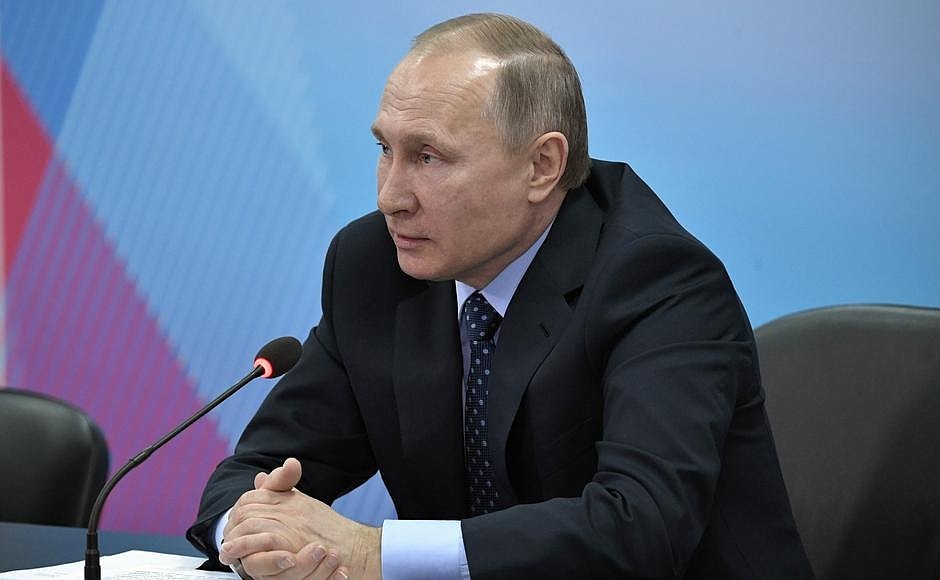
Putin at the meeting on preparations for the 29th Winter Universiade Krasnoyarsk 2019 (Source: Kremlin.ru)
Russian Orthodox Prelate States That WWII Was One Of The Russian Revolution's Consequences
The Metropolitan Hilarion of Volokalamsk, head of the Moscow Patriarchate Department for External Church Relations, warned against militaristic rhetoric. Speaking of the lessons of the 1917 revolution, on the Church and the World program on the Rossiya-24 TV channel, the Metropolitan said: "First of all, we must not allow war. And when one hears, once again, calls for war, the militaristic rhetoric, including from the mouth of Church representatives (such a call was heard a while ago, that a war would help us, that it would cleanse us), these are, of course, totally absurd and, in my view, blasphemous statements". He then stated that no war "ever helped anyone, war is always a misfortune and tragedy for people," adding that the "Great Patriotic War" (WWII) was one of the consequences of the Russian revolution. The Metropolitan stressed: "We can't even imagine what our country would be had there not been the revolution and the war. We would have now had a different quantity, quality of population."
According to the Metropolitan, the people, who seized power after the revolution, infringed "on the most sacred thing our people had, and when it did happen, when they did break the moral backbone that had propped our state for a thousand years, that led to all-permissiveness and rampant terror, repressions, mass executions against our own people."
(Interfax-religion.com, February 20, 2017)
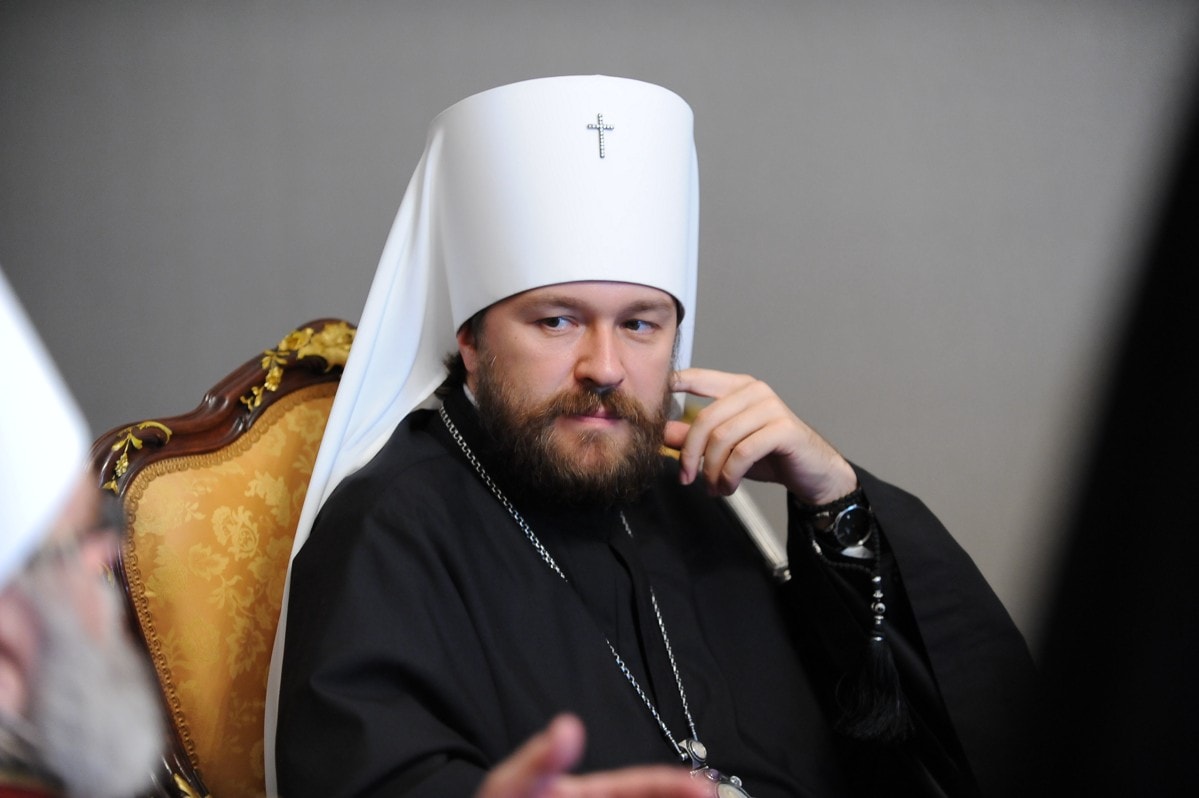
The Metropolitan Hilarion of Volokalamsk (Source: Mospat.ru)
Russian Security Forces Raided Home Of Prominent Human Rights Activist
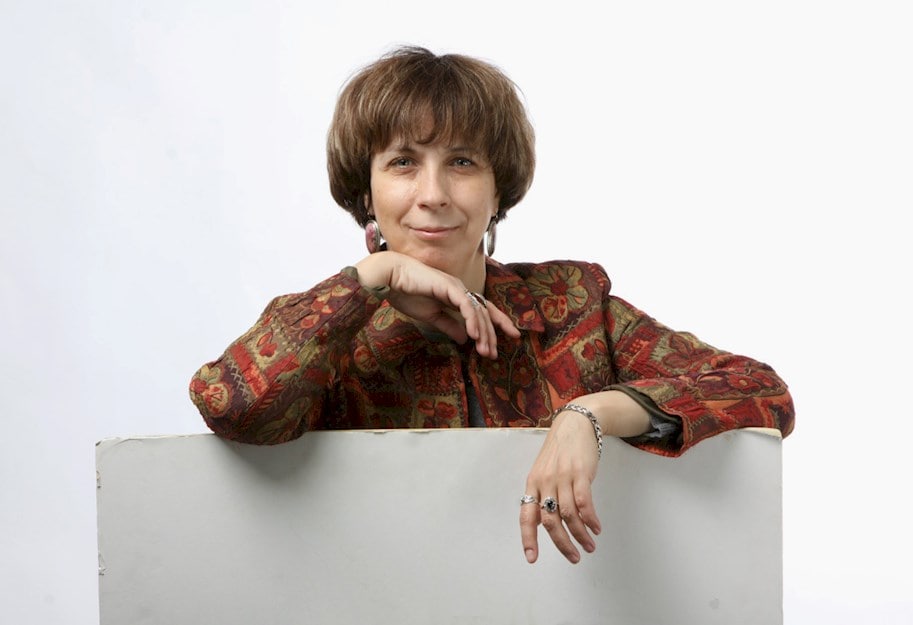
Zoya Svetova (Source: Kohodorkovky.com)
On February 28, Moscow law enforcement officers raided the apartment of Russian journalist and human rights activist Zoya Svetova. Svetova’s son Timofei Dzyadko explained that the search was related to the Yukos affair of 2003 and to Mikhail Khodorkovsky’s Open Russia, where the journalist works. Khodorkovsky's website (Khodorkovsky.com) wrote:
"This morning a group of 10 investigators arrived at Zoya Svetova’s apartment to carry out a search in connection with the Yukos case. According to Svetova, who is a prominent journalist and human right activist currently working at Open Russia, there is no logic in the actions of the FSB, and the only goal of the search seems to be intimidation.
"The search was authorized by Moscow’s Basmanny district court on the 18th of January 2017. The official reason for the search was that Svetova’s apartment may contain documents connected with Mikhail Khodorkovsky, the founder of Open Russia and former head of the Yukos oil company.
"Zoya Svetovaya, 57, came from a family of Soviet dissidents. In 1982, her mother, the Orthodox writer Zoya Krakhmalnikova was arrested. In 1985, three years after the first search, Zoya’s father, writer and dissident Felix Svetov, was also arrested. Svetova, whose three sons (Philip, Timofey, and Tikhon Dzyadko) are also prominent Russian journalists, has been contributing to various media outlets, including Russia’s New Times, Novaya Gazeta, Ezhenedelny Zhournal, as well as the French Liberation, Radio France, and France 2. At Open Russia Svetova works with political prisoners and covered human rights issues.
"Open Russia activists believe that the only real goal of the current investigation is to intimidate people connected with the opposition movement. Earlier, a search in connection with the Yukos case was also conducted in Open Russia’s Moscow office in the spring of 2015. It is noteworthy that Open Russia Coordinator Vladimir Kara-Murza has recently suffered from another poisoning by an "unknown" substance (this is his second poisoning since 2015).
"After the search had finally come to a close, Zoya Svetova made the following statement: 'It’s insane, that at the very same time that the [Sochi] Investment Forum is going on, where the ombudsman is calling for unjust laws to be revoked, that the police turn up to the house of a journalist to conduct a search. I am a member of Open Russia, I pay my taxes, I do not understand why I am being searched at 11 o’clock in the morning. [The police] asked where I was doing repairs. I spoke about it on the telephone. This means that they had been monitoring my phone calls, and I do not understand why. I assume it’s connected with the research I’m conducting with Open Russia. The government doesn’t like it and they want to intimidate me. I’m still trying to find the logic in this, but they rightly say that no such logic is to be found in the actions of the FSB.'"
(Khodorkovsky.com, February 28, 2017)
Strange But True
Deputy Duma speaker Igor Lebedev, who representsthe Liberal Democratic Party, proposed to turn football fan's fights into an official athletic branch, Lebedev said: "Fans' fights could become a branch of sport. Let's set up rules and run contests among fans' teams". The deputy speaker thinks that fans' fights could prove no less popular than the actual games. "Our fans are fighters but not hooligans", said Lebedev, stressing that he's sure that Russia could be a "pioneer" in this new sports branch.
(Ria.ru, March 6, 2017)


